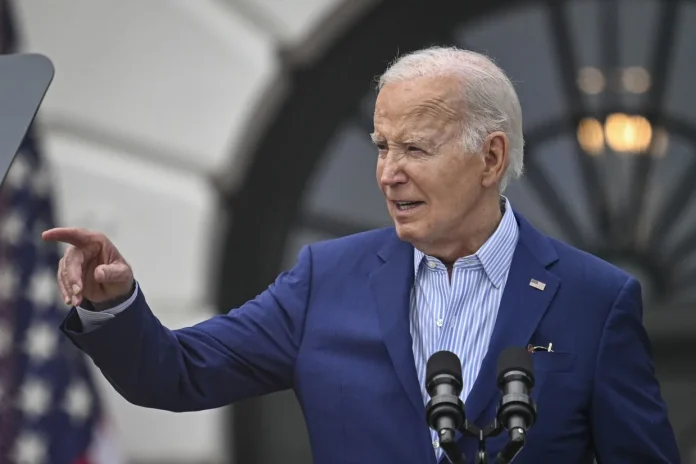US President Joe Biden meets with his Ukrainian counterpart Volodymyr Zelensky during the 80th anniversary of D-Day in Normandy, France.
US National Security Adviser Jake Sullivan gave an interview to reporters during a briefing aboard Air Force One en route to France.
While he’s [Biden] in Normandy, he’ll have the opportunity to sit down with President Zelensky.
Biden would also have the opportunity to see Zelensky again in a few days at the G-7 summit in Italy, Sullivan added. He confirmed that the president would not attend the Ukrainian peace summit scheduled for June 15-16 in Switzerland.
Sullivan also discussed the possibility of sending US military advisers to Ukraine for training.
We’re not planning to send US military advisors or troops, trainers, to train Ukrainians in Ukraine. For our part, we’re not planning for a training mission in Ukraine.
He stated that Kyiv needed a “continued flow of weaponry, which we are going to supply.”
Last week, Biden granted Ukraine secret permission to use US-supplied weapons to launch strikes on Russian territory. However, the authorisation only covers the area around the northeastern Ukrainian city of Kharkiv, where Russian forces entered in early May and have been advancing ever since.
The president thought it was right that if Russian forces are hitting Ukraine, from Russia into Ukraine, that Ukraine should have the right to hit back, including with American made weapons, and so he authorised the use of weapons for that specific purpose.
G7 summit
The G7 countries (the UK, Germany, Italy, Canada, the USA, France, Japan, and Germany) are discussing the possibility of granting Ukraine a loan repaid at the expense of revenues from frozen Russian assets, US Treasury Secretary Janet Yellen reported during a speech in the US Senate.
She admitted that it would be possible to provide a new mechanism for financing Ukraine at the upcoming G7 summit scheduled for June 13-15 in Italy.
Meanwhile, the US is coordinating with its partners on ways to use Russian assets to provide assistance to Ukraine. Yellen recalled that the assets of Russian funds worth about $204 billion were frozen in the Belgian depository Euroclear.
According to the US Treasury Secretary, the total profit from the frozen Russian assets will amount to $3 to $5 billion dollars annually.
Janet Yellen did not specify the amount of the loan that the G7 countries hoped to provide to Kyiv. However, according to Reuters, it could be as much as $50bn. She reportedly announced the amount after a meeting of G7 finance ministers in Italy in May.
